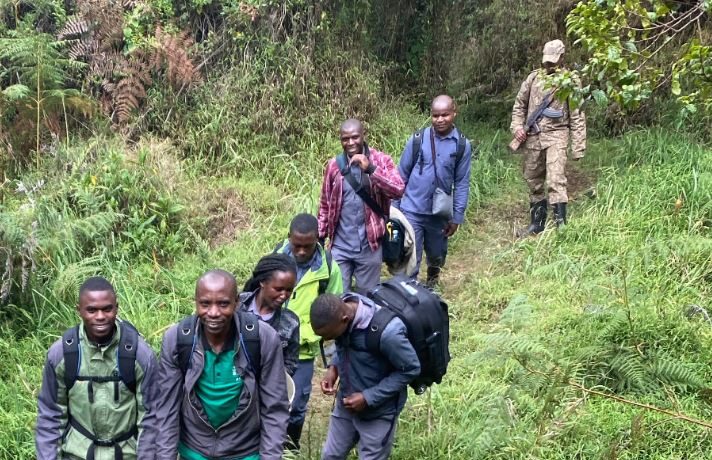Uganda, often referred to as the “Pearl of Africa,” is not just a tapestry of breathtaking landscapes; it is also a sanctuary for one of the world’s most awe-inspiring creatures – the mountain gorillas. Nestled within its lush forests, Ugandan gorilla trekking offers a unique and compelling adventure that seamlessly blends conservation efforts with sustainable ecotourism. As we delve into the heart of this conservation symphony, travelers are invited to witness the remarkable harmony between preserving the majestic gorillas and the immersive experiences offered by responsible tourism.
The Gorilla Habituation Experience
The Bwindi Impenetrable Forest National Park and Mgahinga Gorilla National Park are the primary homes to Uganda’s mountain gorilla population. The Gorilla Habituation Experience, an exclusive encounter offered in Bwindi, allows a limited number of visitors to spend extended hours in the presence of these incredible primates. This intimate experience provides a rare opportunity for travelers to witness the gorillas’ natural behaviors and fosters a deeper connection with these endangered creatures.
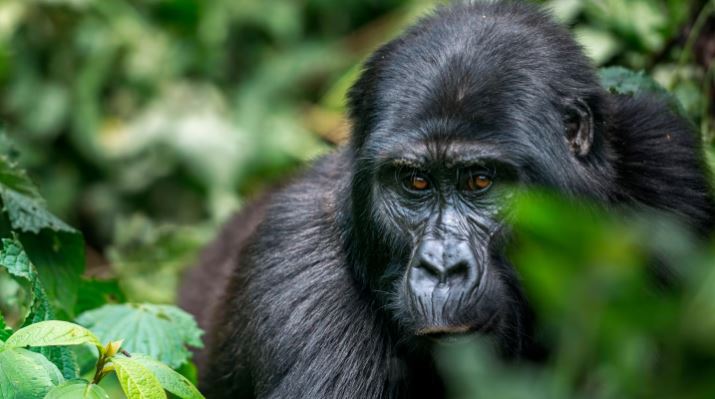
Conservation Efforts: Protecting the Gorillas’ Habitat
Uganda has been unwavering in its commitment to the conservation of mountain gorillas. The Uganda Wildlife Authority, in collaboration with international organizations and local communities, has implemented robust conservation programs to protect the gorillas and their habitats. Strict regulations, including limited permits for gorilla trekking, aim to minimize human impact and ensure the sustainability of these crucial conservation efforts.
Gorilla Trekking: A Journey into the Wild
Gorilla trekking in Uganda is a thrilling adventure that takes travelers into the heart of the mist-covered mountains. Guided by experienced trackers and armed with permits, participants embark on a journey through dense forests, navigating rugged terrain to encounter gorilla families in their natural habitat. The excitement of spotting these magnificent creatures amid the foliage creates an unforgettable experience, offering travelers a glimpse into the delicate balance of nature.
Ecotourism: Fostering Sustainable Practices
Uganda’s approach to gorilla trekking aligns seamlessly with the principles of ecotourism. The focus is not only on providing an extraordinary experience for travelers but also on ensuring that tourism contributes positively to the local environment and communities. Eco-friendly lodges, responsible trekking practices, and community engagement initiatives are integral components of Uganda’s commitment to sustainable tourism.
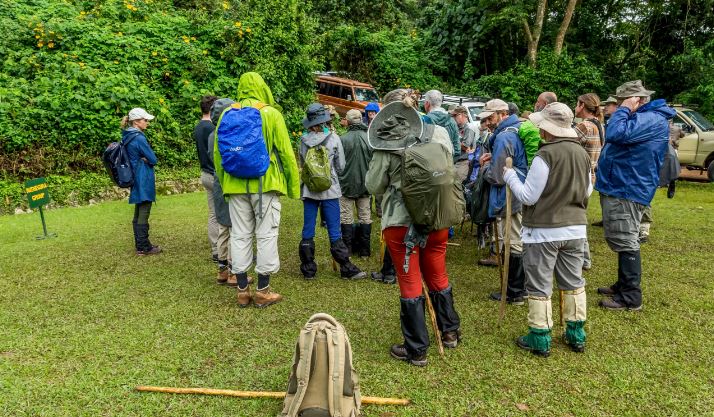
Community Involvement: Sharing Benefits Locally
Conservation and ecotourism initiatives in Uganda extend beyond protecting gorillas; they actively involve local communities. Revenue generated from gorilla trekking permits contributes to community development projects, including education, healthcare, and infrastructure. By sharing the benefits of tourism with local residents, Uganda fosters a sense of ownership and responsibility, creating a sustainable model where both wildlife and communities thrive.
The Impact of Gorilla Tourism on Local Economies
Gorilla tourism plays a pivotal role in boosting local economies. The influx of travelers seeking the unique experience of gorilla trekking stimulates the growth of hospitality and service industries in nearby communities. As tourists explore the cultural richness surrounding the parks, they contribute to the preservation of local traditions and crafts, further enhancing the tapestry of the Ugandan experience.
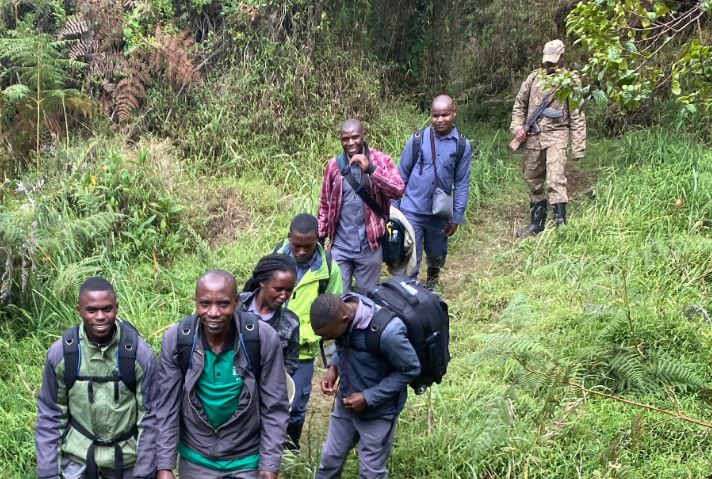
Responsible Travel: Minimizing Environmental Impact
Uganda recognizes the delicate balance between tourism and conservation. Efforts are continually made to minimize the environmental impact of gorilla trekking. Sustainable practices, such as waste management, energy conservation, and reforestation initiatives, are implemented to ensure that the ecological integrity of the gorillas’ habitat remains intact for generations to come.
Permits and Regulations: Ensuring Sustainability
To manage the number of visitors and safeguard the gorillas’ well-being, Uganda imposes strict regulations on gorilla trekking. A limited number of permits are issued each day, controlling the human presence in the gorillas’ habitat. This careful balance ensures that the impact of tourism is sustainable and that the experience remains exclusive and extraordinary for those fortunate enough to partake.
Conservation Success Stories: The Gorilla Population Thrives
Uganda’s commitment to gorilla conservation has yielded remarkable success. The mountain gorilla population, once critically endangered, has seen a steady increase, thanks to dedicated conservation efforts. The thriving gorilla families in Bwindi and Mgahinga stand as living testaments to the positive impact of responsible tourism and conservation practices.
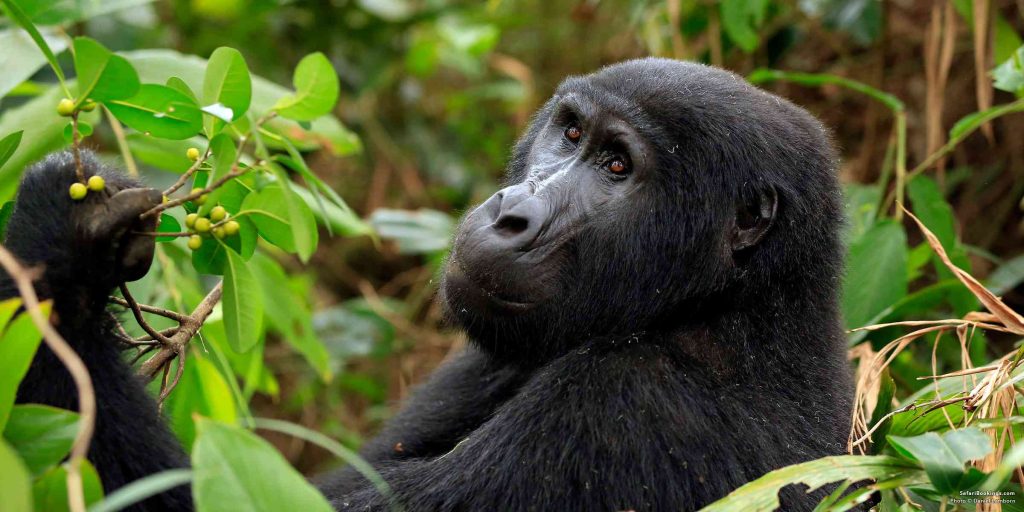
Cultural Experiences: Beyond Gorilla Trekking
While gorilla trekking takes center stage, Uganda offers a diverse array of cultural experiences for travelers. Engaging with local communities, exploring traditional villages, and partaking in cultural festivities enrich the overall journey, providing a holistic understanding of Uganda’s cultural and natural heritage.
Merging Conservation and Adventure
Ugandan gorilla trekking is not merely an adventure; it’s a symphony where the chords of conservation and ecotourism harmonize seamlessly. Travelers are invited to be part of this symphony, where the melodies of nature and responsible tourism create an unforgettable experience. In Uganda, the Pearl of Africa, every step into the mist-covered mountains is a step towards a sustainable and thriving future for both mountain gorillas and the communities that coexist with them.

